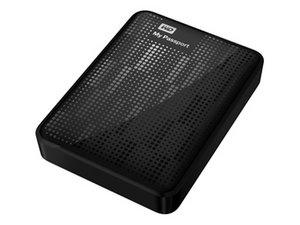As long as the space is not allocated in a partition you can add the second partition to be what ever you want. But! The active OS (Windows or Mac) needs to be able to access it. So… That limits you to HFS+ so Windows can access it and Mac already has the ability to access NTFS.
Besides, APFS is not very useful beyond the boot drive and so far there are no disk tools to defragment HDD’s or repair drives which use it.
If this drive is being actively used under Windows system, I really don’t recommend using it for a long term Mac backup drive, dedicated drives are a better approach.
Lastly I don’t recommend altering active partitions sizes, while it can be done I’ve encountered drives which just couldn’t handle to re-alignment without corrupting the data. Best to back up the data to another drive before you attempt it just in case.
@AgrsIV・AmMÓ - I would go with FAT32, exFAT or FAT than NTFS if read & write are important between both Windows & Mac systems. NTFS is only read as you pointed out.
The first thing is Apple years ago offered different Schemes: GUID Partition Map, Master Boot Record or Apple Partition Map.
Master Boot Record or Apple Partition Map are no longer needed as Windows has moved to GUID with Extensible Firmware Interface initiative (EFI) and Apple Partition Map was only useful with older OS9 based systems using the older HFS.
Microsoft used a Master Boot Record (MBR) back in Window 98 and is no longer used.
So lets clear the table of all of this and start with GUID/HFS+ Vs GUID/APFS and what is a journaled file system?
HFS+ offers a choice on the different file system contexts which gets people confused! The file system is Journaled across all of them its now how the file system handles Mix Case, lower case or UPPER CASE labeling. Apple altered its naming and this is now called MacOS Extended
Choose one of the following Mac OS Extended file system formats for compatibility with Mac computers using macOS 10.12 or earlier.
- Mac OS Extended (Journaled): Uses the Mac format (Journaled HFS Plus) to protect the integrity of the hierarchical file system.
- Mac OS Extended (Journaled, Encrypted): Uses the Mac format, requires a password, and encrypts the partition.
- Mac OS Extended (Case-sensitive, Journaled): Uses the Mac format and is case-sensitive to folder names. For example, folders named “Homework” and “HOMEWORK” are two different folders.
- Mac OS Extended (Case-sensitive, Journaled, Encrypted): Uses the Mac format, is case-sensitive to folder names, requires a password, and encrypts the partition.
APFS also offers these file system contexts!
- APFS: Uses the APFS format.
- APFS (Encrypted): Uses the APFS format and encrypts the volume.
- APFS (Case-sensitive): Uses the APFS format and is case-sensitive to file and folder names. For example, folders named “Homework” and “HOMEWORK” are two different folders.
- APFS (Case-sensitive, Encrypted): Uses the APFS format, is case-sensitive to file and folder names, and encrypts the volume. For example, folders named “Homework” and “HOMEWORK” are two different folders.
HFS+ & APFS are both journaled file systems its just labeled slightly differently.
You appear to be concerned with file system speed. The drives interface has a big bearing on that SATA has a limited buffer queue as such chatty dialogs can mess it up like APFS where PCIe/NVMe is much deeper and is designed to support it. As such I do strongly recommend you stick with HFS+ on SATA drives (independent of the system connection type (USB, FireWire or Thunderbolt).
References:
crwdns2934105:0crwdne2934105:0
crwdns2934113:0crwdne2934113:0
crwdns2915270:0crwdne2915270:0
crwdns2889612:0crwdne2889612:0
1


 2
2 
 329
329  970
970